Kibbitzing Around: The Java Jews
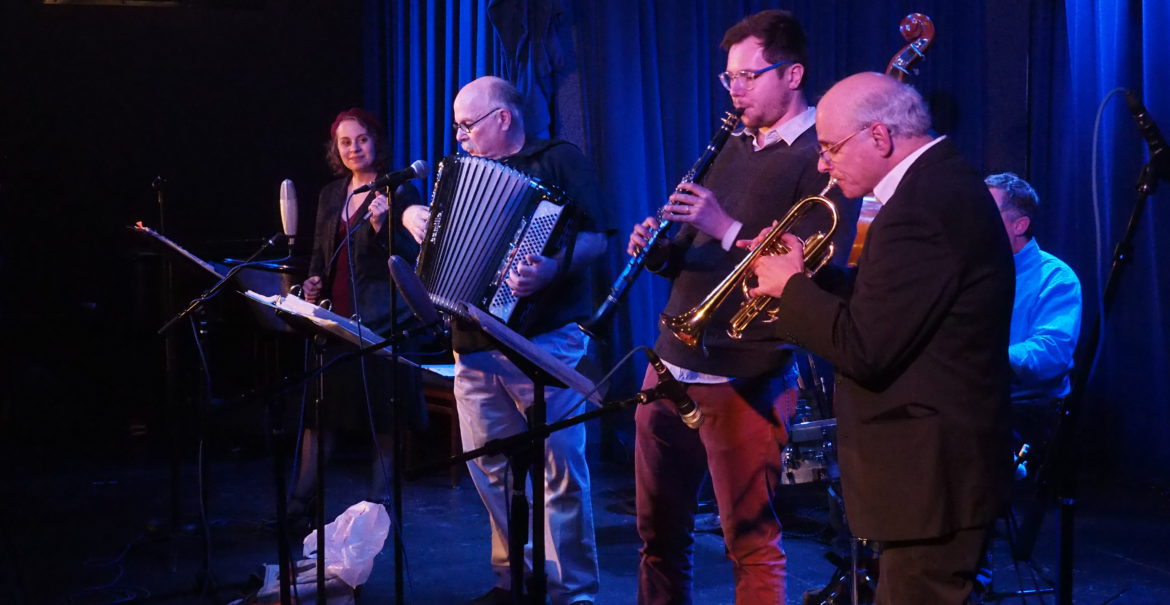
05 Mar 2020 |
The interviews with Mark Finkelstein and Abe Goldstien took place in the Fall of 2019. This story is in memory of Mark, one of the greatest trumpet players in all of Iowa and klezmer music.
The room at Noce Jazz Club is dark except for the flicker of candles on tables and the bright lights shining down on the stage. There is a low murmur in the audience as the musicians begin to appear. The shrill of a clarinet calls the audience’s attention to the stage. Tuning has begun. A quick scale from the trumpet, a few plucked notes from the bass, a tap-tap-tap on the drum and a slow hum of the accordion. A man stands up and moves toward the microphone. “Ladies and gentlemen, we are The Java Jews.”
The Java Jews was formed in 1996 when Mark Finkelstein, a Brooklyn native, moved to Des Moines as the Director of JCRC at The Jewish Federation of Greater Des Moines. An article in The Jewish Press featured him and mentioned his knowledge of klezmer music. Abe Goldstien, a Rochester native who moved to Des Moines in 1969, picked up that article and knew right away he had to contact Finkelstein.
Both men grew up in Jewish homes in New York surrounded by klezmer music, mostly due to radio shows that featured Yiddish music. Both men also happened to play an instrument, Finkelstein the trumpet and Goldstien the accordion. Goldstien wanted to bring klezmer music to the Des Moines community and saw Finkelstein’s recent move as the perfect opportunity. The name “Java Jews” came from the band wanting to play at Des Moines local coffee shop, Java Joe’s. It was a bit of a gimmick and a way to appeal to the venue. Well, it worked. The Java Jews have played at Java Joes several times in addition to The Art Center, The Iowa State Fair and many other venues across Iowa.
Bringing Sounds from the Old Country to Life
“The spirit of Yiddish music is fun, we kibbitz around,” Goldstien says. “To have fun is our brand. We want everyone in the audience to have fun, joke around and interact with us and the music.”
Klezmer music originated in the 18th century in shtetls—Jewish ghettos scattered throughout Eastern Europe. With the influx of European Jews moving to America in the 20th century, they brought with them the tunes of the shtetl. Klezmer music was quickly introduced into American culture and was influenced by popular jazz and pop music at the time. The word klezmer comes from two Hebrew roots; “klei” meaning instrument and “zemer” meaning song. The songs are typically sung in Yiddish and performed at joyous Jewish occasions such as weddings and Bar/Bat Mitzvahs.
Across New York, families enjoyed time together listening to a radio show called “The Jewish Hour.” Versions of this popular show were heard on radios in the homes of Jewish families, including Goldstien’s and Finkelstein’s. “That was part of the ethnicity of New York,” Finkelstein said. “I couldn’t understand the Yiddish, but it played a number of composers, old and new. The station I listened to was recorded in a studio across the street from my high school.”
“My connection to my parents and grandparents is klezmer music,” Goldstien says. “I don’t follow all the Jewish laws and rituals, so for me, this music is the part of my culture I keep alive. Klezmer music moves me.”
Goldstien recalls sitting down at the age of 13 to play his state-of-the-art electric accordion and his mother standing besides him, humming along. He began playing the accordion after suggesting other instruments to his parents, who would come up with a reason why that instrument wouldn’t work. “I wasn’t really enthusiastic about playing the accordion at first,” Goldstien says. “Turns out, my father already had one and was secretly taking lessons and practicing in the basement. He had slipped on ice and hurt his wrist and shoulder, so he was no longer able to play. That’s when I started.”
Finkelstein’s decision to play the trumpet was a little more direct, as it was the first instrument that came to mind. “I was asked ‘what do you want to play?’” Finkelstein said. “I said trumpet. When you’re a little kid, it’s quite a big trumpet.”
The music books Finkelstein and Goldstien played out of were mostly books of Yiddish music. These books were carried with them through life and they still play songs out of them today.
“We still play out of the music book from my childhood, the tunes my mother loved,” Goldstien says. “Playing this music keeps me connected to her. Her favorite song was one that translates to ‘Happiness, You Have Come a Little too Late.’”
Playing to Their Own Beat
“Happiness, You Have Come a Little too Late” was one of the first songs ever performed by The Java Jews, and is still a favorite. Goldstien explains this waltz captures the true essence of Yiddish sentiment; to have happiness and sadness in the same moment. Sometimes it is the lyrics, sometimes it is the sound of the instruments, but these two emotions can be picked out of many klezmer songs.
“Klezmer is Jewish jazz, it has the inflection of the Jewish people,” Finkelstein said. “The songs are played in a minor, which most people think is sad. It’s not sad to us. It’s just another mode.”
The Java Jews is made up of talented musicians who each have their own take on klezmer music. Sometimes it is the same musicians playing together, other times there are guests joining the band. But almost always what is heard on stage is rarely rehearsed. But this is part of the spirit of the music. “When you have an ethnic band, they make their own rules,” Finkelstein said.
“The only time we practice together is when we play,” Goldstien says. “We just play and it works great. It’s part of the fun. I don’t know what’s going to happen next, the band members don’t know what’s going to happen next and the audience doesn’t know what’s going to happen next. How much more fun can it be?” But not everyone agrees with this mentality.
“I come from a music school, I have a degree in music so I like to practice,” Finkelstein said. “But, not practicing does keep things fresh, especially when we have different musicians playing with us. We listen to each other and then compliment what we hear. It enhances the performance.” Goldstien and Finkelstein liked to joke about their opinions on practicing. Goldstien would say there are no wrong notes, and Finkelstein would answer that he will find them.
The Java Jews Now
“Despite being a consummate musician in every sense of the word, Mark found a home in the often imperfect musical setting of the Java Jews,” Goldstien says. “His knowledge of Yiddish music, beautiful tone and tutelage of a succession of clarinet players in the ways of klezmer were indispensable in sustaining the Java Jews for almost 20 years. No question that Mark would want us to continue to spread the joy of Yiddish music throughout the land, which we will do in his honor. Look for us at Noce Jazz Cabaret on Thursday, May 14, 2020.”

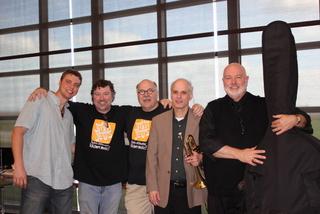
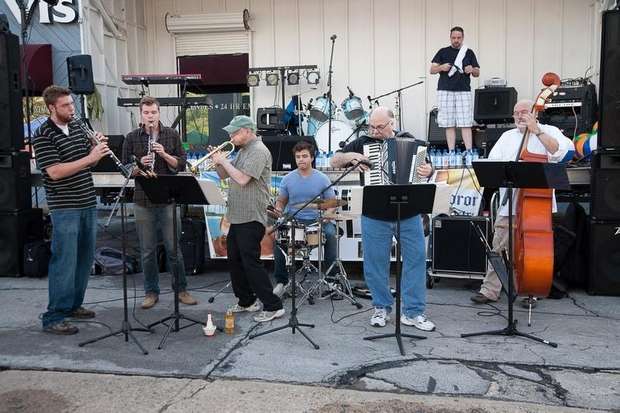
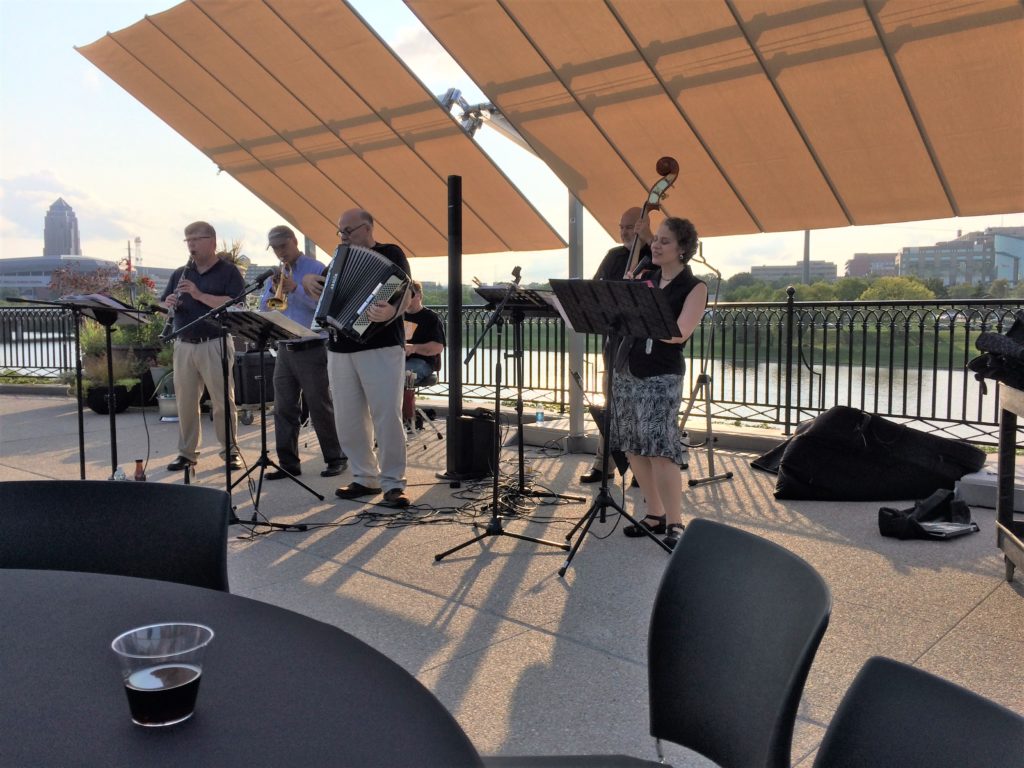
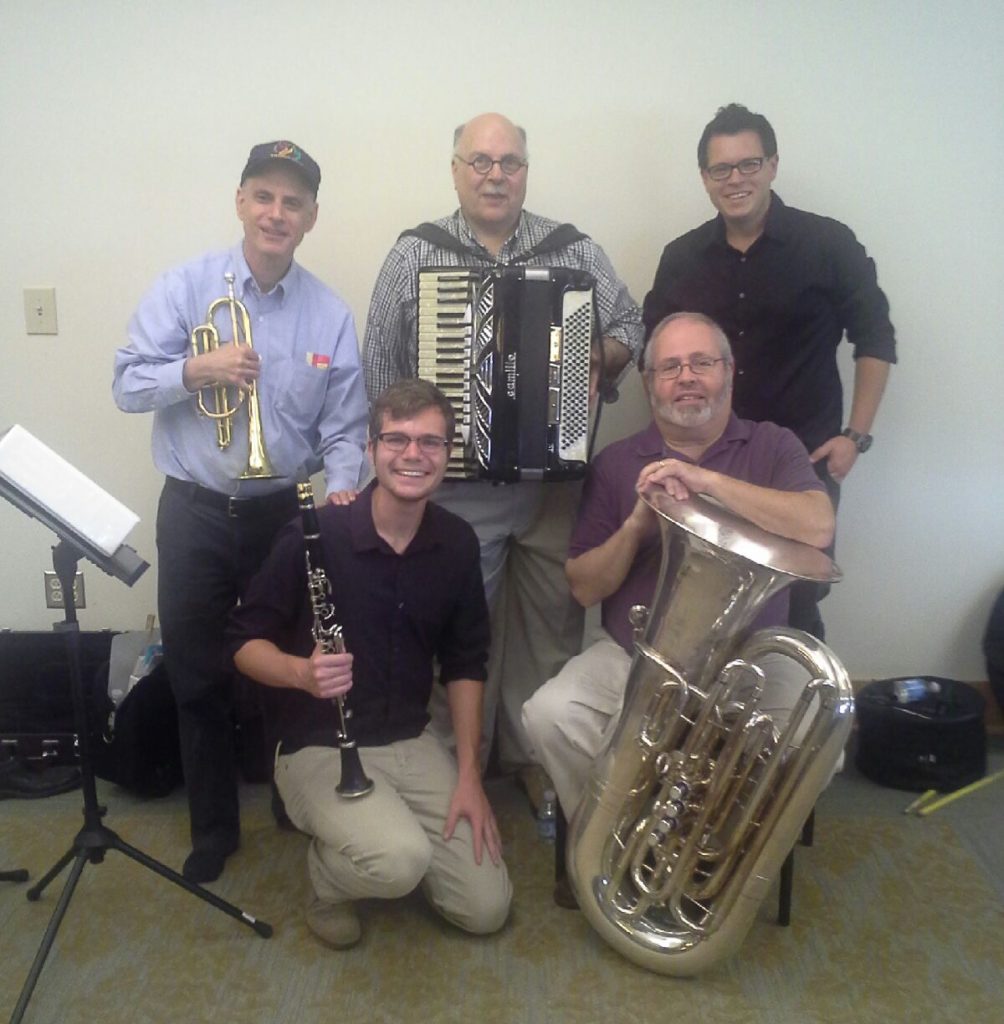

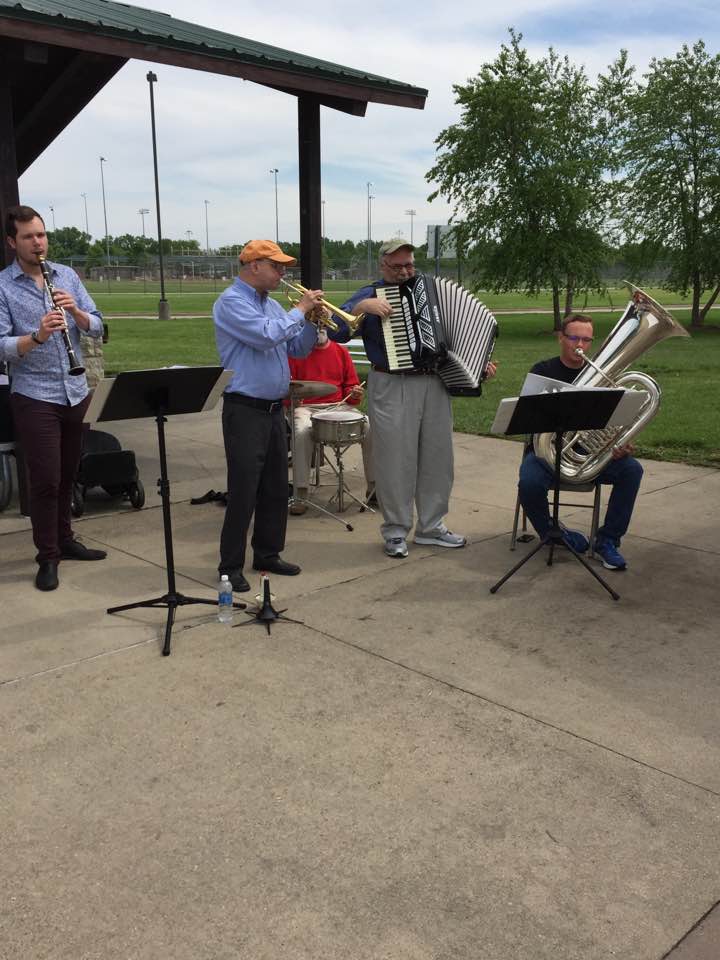
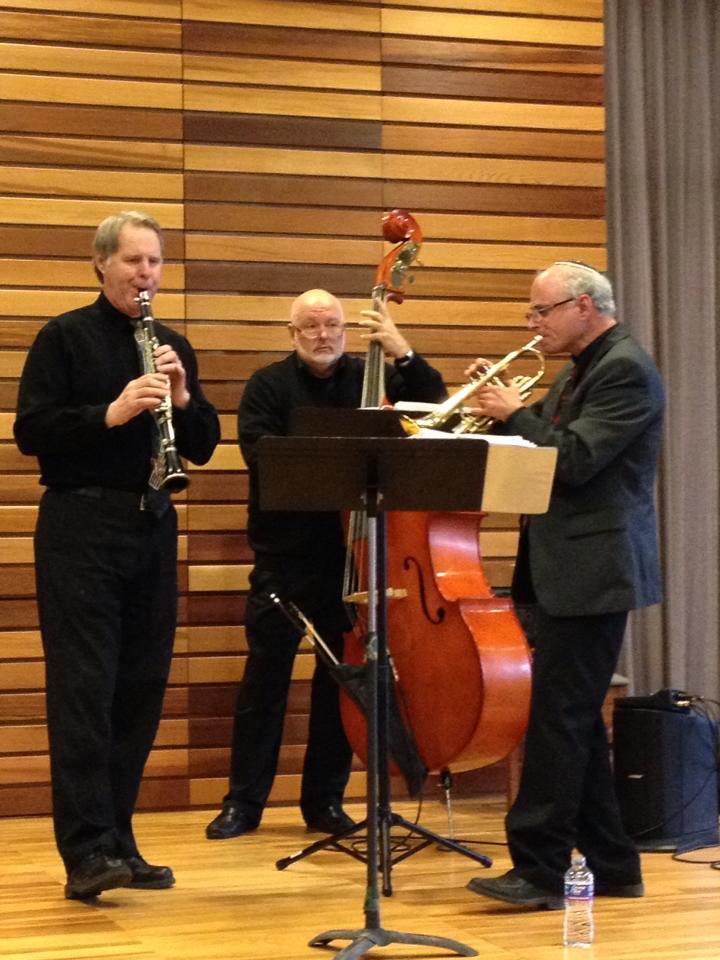
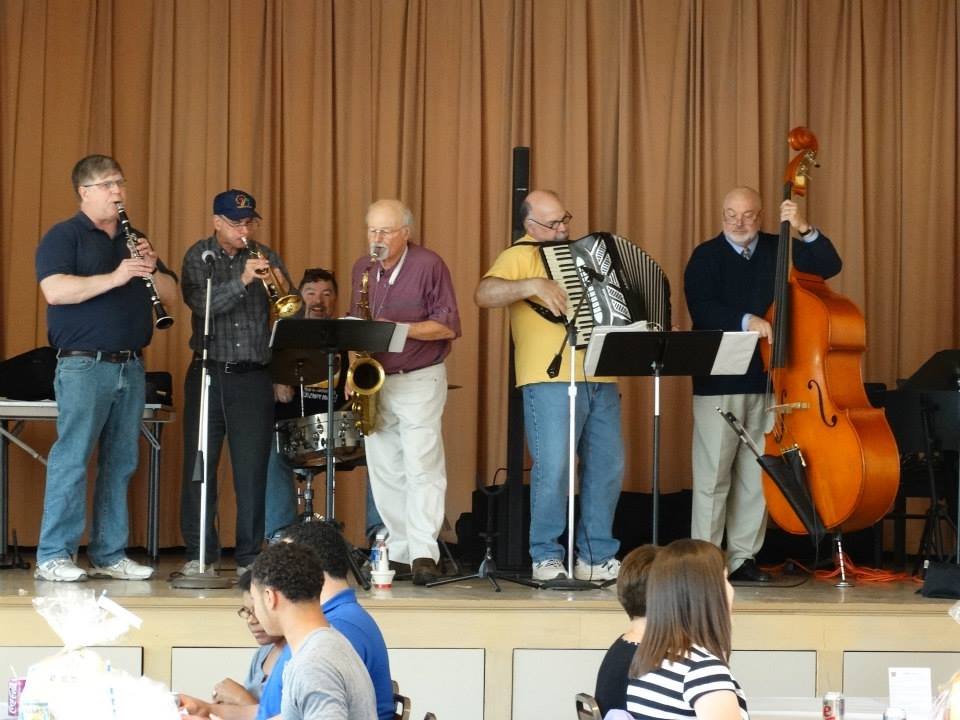
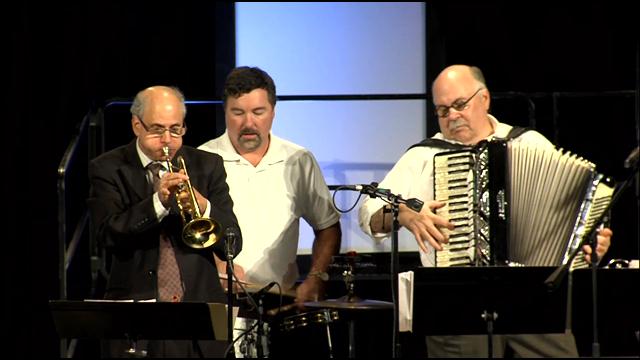

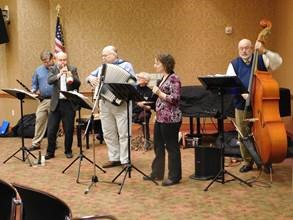
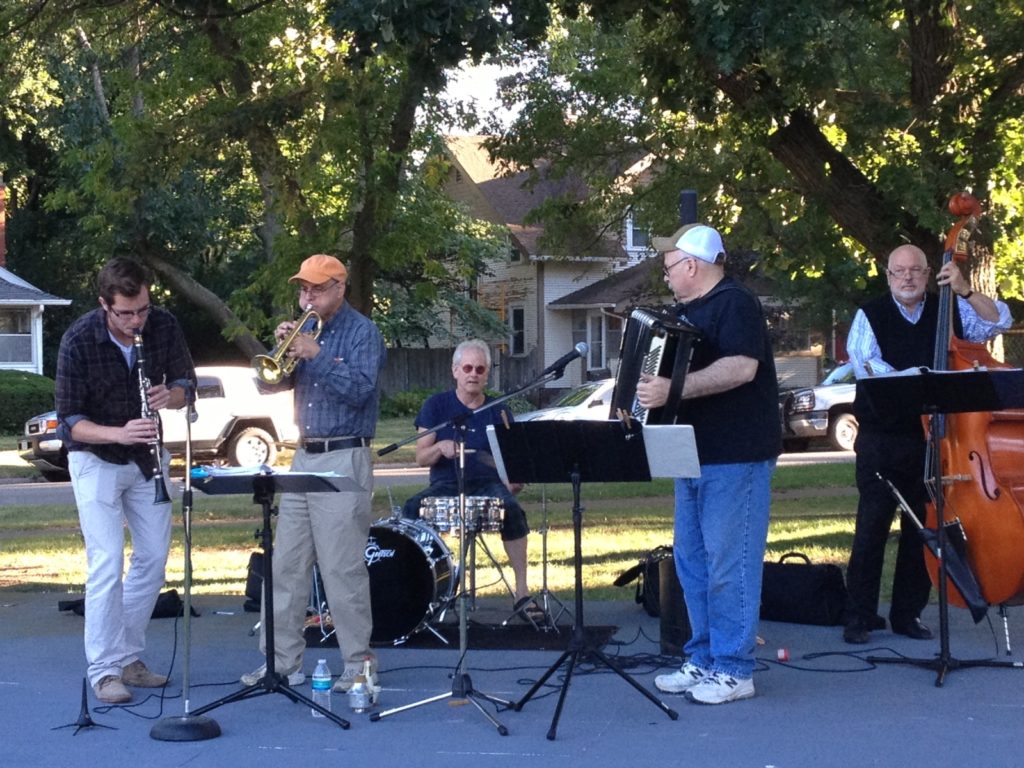
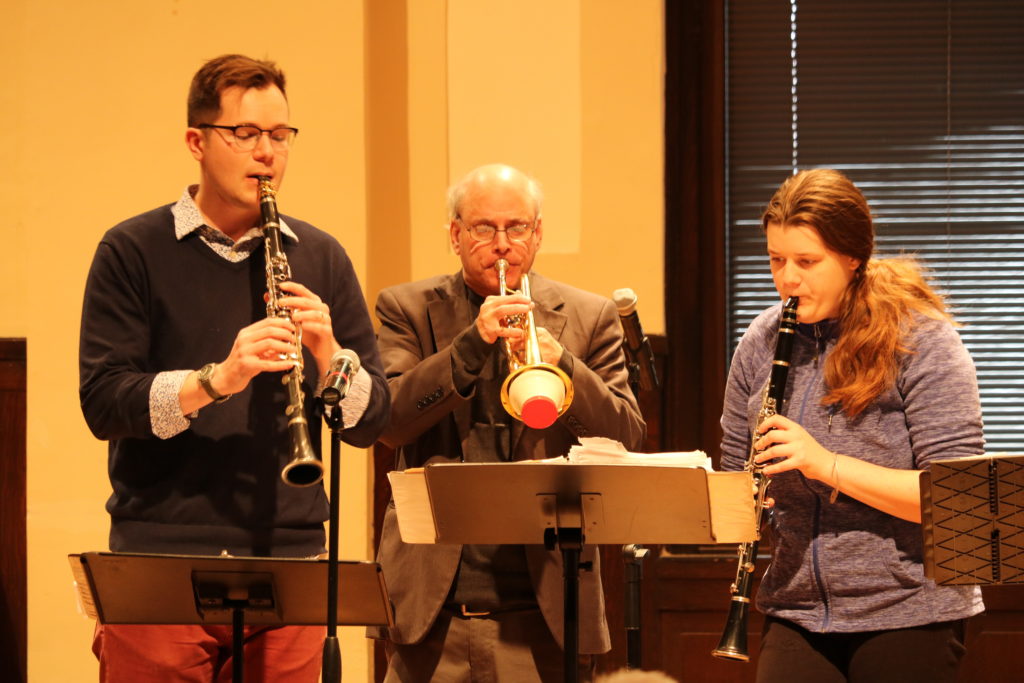
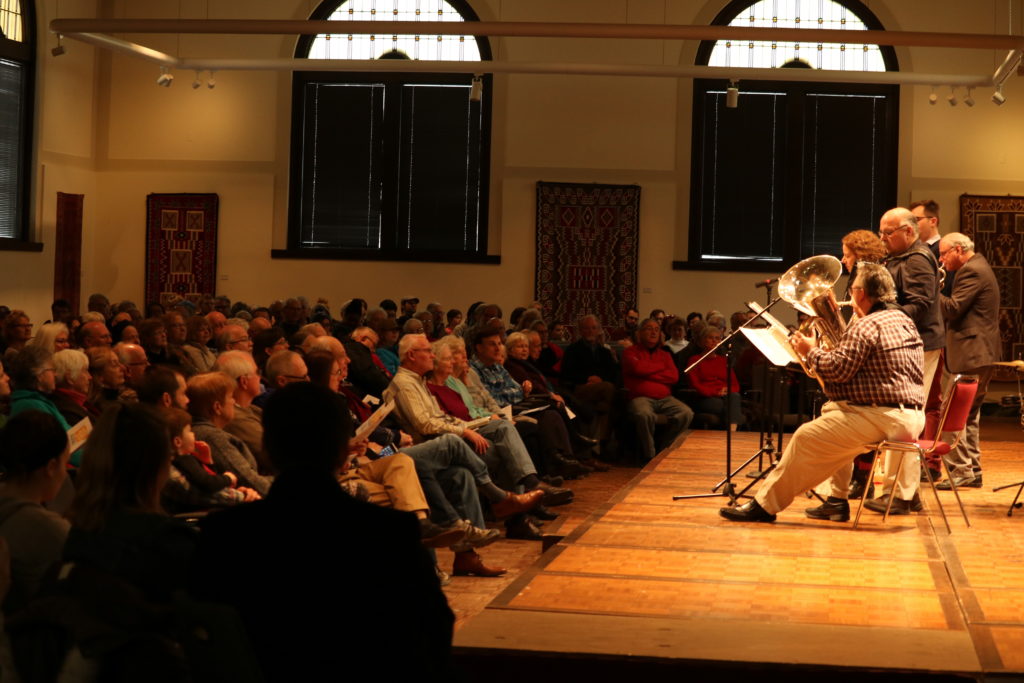
3 Responses to “Kibbitzing Around: The Java Jews”
Michael Lewis
This was a wonderful story. Wish I was near Iowa and could hear you guys. Sorry about your recent loss, Mark sound like a true mensch. I grew up with the music you play, listening to it on WEVD or WHN in New York. I was lucky enough to transition into show business and managed the careers of the Barry Sisters for many years. I’m sure much of the music you play was recorded by Claire and Merna Barry. Again, my deepest sympathy for your loss of Mark but PLEASE continue the group so that someday I can visit Iowa and hear you. Zeit Gezunt.
Dee Wren on the History, and Temporary Absence, of Iowa Music | Iowa Informer
[…] people should really check Java Jews, “Iowa’s only klezmer band.” They’re a lot of fun, really talented, and […]
Linda powers
Where will the gentlemen play next?